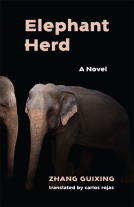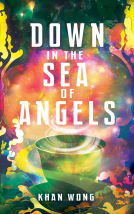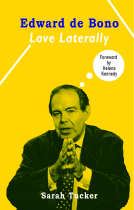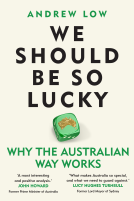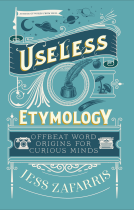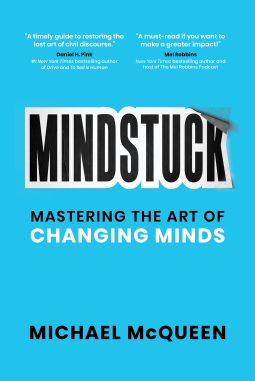
Mindstuck
Mastering the Art of Changing Minds
by Michael McQueen
This title was previously available on NetGalley and is now archived.
Send NetGalley books directly to your Kindle or Kindle app
1
To read on a Kindle or Kindle app, please add kindle@netgalley.com as an approved email address to receive files in your Amazon account. Click here for step-by-step instructions.
2
Also find your Kindle email address within your Amazon account, and enter it here.
Pub Date 5 Dec 2023 | Archive Date 19 Feb 2024
Talking about this book? Use #Mindstuck #NetGalley. More hashtag tips!
Description
We’re told you can lead a horse to water, but you can’t make it drink.
But what if this is not true?
Having spent the past two decades helping Fortune 500 brands and leaders embrace the changes they’d rather fight or ignore, Michael McQueen understands what it takes to change even the most stubborn minds.
But persuading others is getting harder and harder. In our ideology-driven and polarized age, certainty has taken the place of curiosity and open-mindedness has given way to obstinance.
Drawing on the latest discoveries in disciplines ranging from neuroscience to behavioral economics, McQueen suggests that we are too often using nineteenth- and twentieth-century techniques to change twenty-first-century minds—and are wondering why it’s not working. What we need is an upgrade in our understanding of what it really takes to influence others.
Whether you are a leader trying to help your team keep pace in changing times, a businessperson who needs a potential partner to see your value proposition, or a parent who wants to get your teenager away from their screen, this book will show you how to persuade even the most mindstuck people in your world.
Advance Praise
“Michael McQueen shows readers how to master the art of healthy persuasion. He shares a range of proven techniques that are invaluable and easy to implement. Mindstuck is a must-read if you want to make a greater impact!” — Mel Robbins, New York Times bestselling author and host of The Mel Robbins Podcast
“With its deft mix of research, humor, and practical advice, Mindstuck offers a timely—and much-needed—guide for restoring the lost art of civil discourse. If you want to learn how to change minds, Michael McQueen opens the door.” — Daniel H. Pink, #1 New York Times bestselling author of To Sell is Human, Drive, and The Power of Regret
“In Mindstuck, Michael McQueen dispels many common myths about what it really takes to move others. This book is a must-read guide for anyone looking for practical insights into how to persuade even the most stubborn and strong-willed individuals.” — Jonah Berger, PhD, Wharton professor and bestselling author of Contagious, Magic Words, and The Catalyst
“Mindstuck shows readers how to gain and wield the superpower of persuasion using clear examples and the latest science. You, too, can be a persuasion pro when you read this book.” — Paul J. Zak, PhD, professor of neuroeconomics and author of Immersion: The Science of the Extraordinary and the Source of Happiness
“Saturated with science yet practical and funny! Mindstuck grabbed my attention from the very first page. This book will help you win hearts even when minds are on the defensive.” — Zoe Chance, PhD, senior lecturer, Yale School of Management, and author of Influence is Your Superpower
“Prepare to have your mind blown as Michael McQueen dives into the inner workings of human cognition. Mindstuck is like a rollercoaster ride for your brain with unexpected twists and turns that will have you laughing out loud and re-evaluating everything you thought you knew about thinking.” — Jay Van Bavel, professor of psychology, New York University
Available Editions
| EDITION | Hardcover |
| ISBN | 9781637557396 |
| PRICE | US$29.95 (USD) |
| PAGES | 304 |
Available on NetGalley
Featured Reviews
Well, this was another solid four-star read.
I’ve read a lot of books like this before (and have a few that I haven’t read), so this was a happy little jaunt into familiar territory.
The main strong point of this book is that it actually improves upon the books about this stuff that I was reading ten years ago, with updated context and sources. Back in 2014, when the term “sigma male” hadn’t been coined yet and people were still trying to be Sherlock Holmes because Benedict Cumberbatch, the sorts of books I read on this topic still tried to suggest that Donald Trump was somebody we should look up to in business strategy. Meanwhile, this book mentions a lot of current topics that will hit home with people, such as the COVID-19 pandemic and the 2016/2020 US elections, so I think that readers will almost always have a good idea of what the author is talking about.
The book also features a lot of scientific studies, including a great deal of newer ones (i.e. from the past ten years), plus some classics. There are a lot of big names cited in here including Asch, Festinger, Gazzaniga, Cialdini, Zak, and other familiar psychologists. McQueen has also read around his own genre here, because he cites Jay Heinrichs, Kevin Hogan, and other authors who have written similar things. As a result, not everything in this book is terribly original, but it’s packaged and formatted for the modern era and McQueen cites his sources and influences very well. It’s a whole lot more compelling than a book written by someone who claims to have discovered something nobody else has ever written about, which usually implies that they are either making something up out of whole cloth or haven’t even done the most basic searching to see what has already been written about their topic. (See: the endless number of authors claiming to have written the definitive book on why people are unhappy, how to be happy, what makes us human, or how to become a CEO) This book also does away with some of the outdated stuff in older books that has been disproven, like the idea that you can always depend on body language to figure out what other people are thinking, which research now suggests isn’t true. (Which I can attest to—if I have a blank look on my face, it’s not because I’m “uncertain” or “unhappy”, it’s because I’m lost in my mind thinking about how much I enjoyed “Escape from New York” (1981) or the computer-generated imagery in The Second Law by Stephen Wolfram.)
My only complaint is that, at times, McQueen suggests things that really only make sense in certain circumstances. For instance, while I do think you need to understand other perspectives, there are many cases in which you really shouldn’t genuinely open yourself up to those perspectives, because many are quite simply based on information that isn’t true. As in, I guess I could be a sympathetic ear to someone who believed that aliens were putting chips in our heads, but suggesting that something so clearly untrue could actually be a valid standpoint would likely make things worse—while you need more than evidence to inspire someone to change their mind, you do need to show that evidence at some point.
I also think there are also plenty of cases in which you shouldn’t try to persuade someone, or are under no obligation to try to persuade them. For example, whenever I am in a completely avoidable conversation with someone who clearly doesn’t really see me as a human person in the same way that they are, I tend to extricate myself and go home (so to speak). Not because these people are incapable of ever being persuaded, but because you do need to have some higher degree of good faith from both sides in order to have a constructive, persuasive conversation, and when the other person doesn’t even see you as someone who might matter, there is not equal good-faith participation. No matter how “nice” I try to be about it. Really, I’d be better off trying to convince Person X who is already predisposed to have basic respect for me that someone they might not have basic respect for, Person Y, could be deserving of respect, simply because I already have some rapport with Person X to a degree that X and Y don’t have with each other. At some point I think you need to realize that you are limited in your ability to shape everyone’s opinions and spend your energy accordingly.
Other than that, I generally recommend this book, particularly to people who don’t want to sift through every book on this topic in the library like I did when I was 14.
 J. K, Reviewer
J. K, Reviewer
Thanks to Netgalley and the publisher for this eARC.
"Mindstuck: Mastering the Art of Changing Minds" by Michael McQueen is a compelling exploration into the art of persuasion in an era where changing minds seems more challenging than ever. McQueen, with his extensive experience in helping Fortune 500 companies and leaders adapt to change, delves into the intricacies of human psychology and the barriers that prevent us from influencing others.
The book is structured in a way that each chapter builds upon the last, creating a comprehensive guide on the subject. McQueen's use of anecdotes and case studies from his professional life adds a personal touch that makes the content relatable and engaging. His writing style is both efficient and lively, ensuring that the reader is not just informed but also entertained.
One of the book's strengths is its practicality. McQueen doesn't just theorize about the difficulties of persuasion; he offers actionable advice and techniques that readers can apply in various aspects of their lives, whether they are leaders trying to inspire their teams, businesspeople seeking to convince partners, or parents attempting to communicate with their children.
Drawing from disciplines such as neuroscience and behavioral economics, McQueen argues that traditional methods of persuasion are outdated for our modern minds. He suggests that we need an upgrade in our approach to truly influence others in the 21st century. The book ends each chapter with persuasion tips, serving as valuable takeaways for the reader.
Critics and readers alike have praised "Mindstuck" for its insights and practical advice. Notable figures like Mel Robbins and Daniel H. Pink have endorsed the book, highlighting its significance in today's polarized society where open-mindedness is often overshadowed by obstinance.
In conclusion, "Mindstuck: Mastering the Art of Changing Minds" is a must-read for anyone looking to navigate the complex landscape of human interaction and persuasion. It's a timely guide that restores the lost art of civil discourse and equips readers with the tools to make a greater impact in their personal and professional lives.
 Mel K, Reviewer
Mel K, Reviewer
I'm a huge fan of Michael McQueen's and have read and loved many of his books. This one is no exception.
I particularly like how he draws from fields including neuroscience and behavioural economics to apply the current theories of persuasion.
A solid 4 star read, that I expect I will re-read.
Readers who liked this book also liked:
Michelle Dominguez Greene
General Fiction (Adult), Mystery & Thrillers, True Crime
Sarah Tucker; Baroness Helena Kennedy
Biographies & Memoirs, Business, Leadership, Finance, Nonfiction (Adult)
